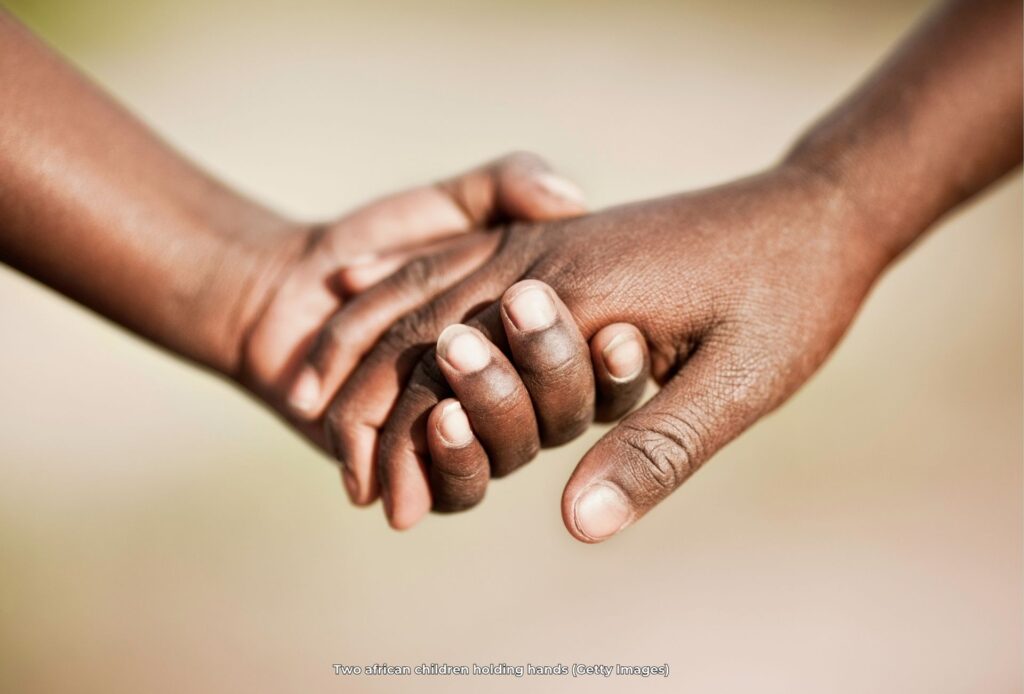Cultivating Community: Nnoboa! The Unspoken Philanthropy.

Credit: ©Getty Images via Canva.com
| Giver: | Community |
|---|---|
| Receiver: | Individual or unstructured/informal group |
| Gift: | Time |
| Approach: | Other |
| Issues: | 1. No Poverty, 10. Reduced Inequalities, 2. Zero Hunger, 3. Good Health and Well-Being, 4. Quality Education, 8. Decent Work and Economic Growth |
| Included in: | African Philanthropy Narratives |
In Ghana, giving is an intrinsic part of the country's rich tradition and culture. This culture of generosity is expressed in diverse ways, deeply ingrained in proverbs and religious teachings, as exemplified by the saying, "Nea onim no sua a, ohiani asem" (He who knows how to give, knows the way of life), "Afofɛ nto mu nkɔ" (The wealth of the world belongs to the community) and "Do not let your right hand know what the left hand does." While community and faith-based organizations play a significant role in fostering these values, these cultural and religious proverbs have often led to silent and unrecognised acts of giving which are not systematically recorded within any professionalized philanthropy framework.
The Ghanaian tradition of personal giving and charitable work is exceptionally vital. It is reflected in acts such as contributing to engagement, wedding, and funeral ceremonies, volunteering to assist neighbours in farming, or supporting extended family members' educational and healthcare expenses. Cash donations given during funerals is known as 'nsawa' and is provided to the family of the deceased to help cover funeral expenses. When the firstborn or the eldest child becomes economically self-sufficient, they often assume responsibility for their younger siblings and extended family members, or when friends and family contribute towards the welfare of an individual in need. Such generosity, along with the provision of in-kind support, is driven by cultural principles of reciprocity, solidarity, and care, and can be generally termed as ‘adoye, meaning generosity or show of compassion. It is worth noting that these acts of giving are not confined to the wealthy but extend across all socio-economic strata.
Agriculture forms the cornerstone of Ghana's economy and employs approximately 70% of the population. Most communities use subsistence farming, primarily employing traditional tools due to low mechanization. In response to the labour-intensive nature of farming, communities have devised a means of supporting one another to alleviate the burden farmers face during the agricultural seasons. This practice, known as 'Nnobua' in the Akan language, translates to "You help me, I help you." It exemplifies a cooperative and mutually supportive spirit within farming and agricultural communities.
Before the farming season begins, communities gather to discuss individual needs and crop choices, and create a plan for supporting each other. Groups are formed based on this plan, typically consisting of members aged 18 and above, excluding the elderly. The elderly, though excluded from physical labor, contribute by providing meals and making some monetary payments. All other farmers provide meals when work begins on their farm. Farmers then unite to assist each other with clearing fields, planting, harvesting, processing, providing labor, and transportation during the farming season. This collaborative effort not only eases the toil on individual farmers but also fosters a sense of community and social cohesion, emphasizing the value placed on collective efforts to benefit all involved in agricultural activities.
The Nnobua tradition extends beyond labor exchange. It serves as a platform for sharing knowledge, addressing challenges, and collectively finding solutions to enhance crop yields. Farmers not only assist with physical labor but also share insights into best practices. Some farmers go a step further by providing seedlings and other resources to those interested in starting or diversifying their crops. This tradition goes beyond the agricultural realm, fostering a supportive brotherhood that extends to various personal events within the community.
The Nnobua practice varies across regions and communities, with differences in participant demographics (men or women). However, the fundamental concept remains consistent. It is important to note that this practice is not limited to a particular crop; rather, it covers a collaborative approach to farming activities in general. In the Wassa Akropong region and its environs, Nnobua is predominantly practiced by men and women farmers mostly rely on paid labor for their agricultural activities. Nevertheless, here, women engage in similar collaborative arrangements for non-farming events.
Contributor: Rachel Gyabaah
| Source type | Full citation | Link (DOI or URL) |
|---|---|---|
| Website |
Enabling Environment for Philanthropy in Ghana. 2017. SDG Philanthropy Platform, United Nations Development Programme. |
https://www.sdgphilanthropy.org/system/files/2018-02/SDG%20Ghana%20Final-2.pdf |
| Website |
Aidoo, A. (2015). Supporting Development in Ghana: The Role of Foundations. SDG Philanthropy Platform, Foundation Centre. |
https://sdgfunders.org/reports/supporting-%20development-in-ghana-the-role-of-foundations/ |
| Private Communication |
N’nobua: How Cooperation Makes Chocolate Something Everyone Can Cherish: FAIR TRADE, Issue 5, Voices of Fair Trade, 2012, Erin Gorman |
https://fairworldproject.org/nnobua-how-cooperation-makes-chocolate-something-everyone-can-cherish/ |
| Publication |
Emmanuel Kumi, Centre for Social Policy Studies, University of Ghana, Legon-Accra; Centre on African Philanthropy and Social Investment (CAPSI), Wits Business School, Johannesburg, South Africa, October 2020 |
https://scholarworks.iupui.edu/server/api/core/bitstreams/c23a72a4-5d57-46dc-9f9b-b4b8edf63cc3/content |